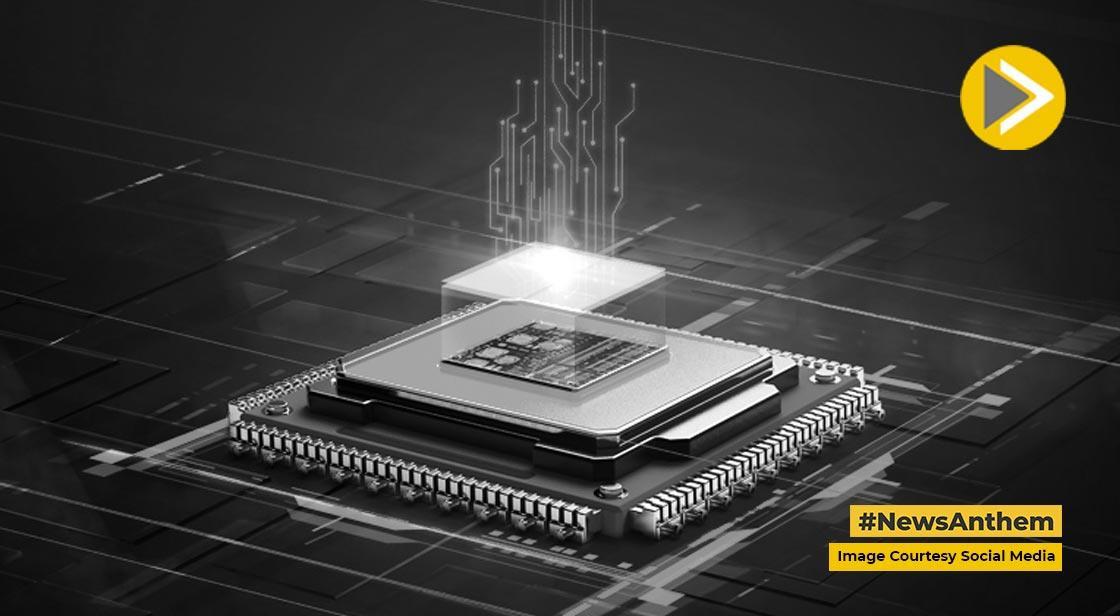US Revokes AI Chip Export Rule: India to Gain Nvidia Access

News Synopsis
In a pivotal change likely to reshape the global AI ecosystem, the United States has officially revoked the Biden-era rule that restricted the export of advanced AI chips. The policy change could greatly benefit countries like India, which are scaling up their AI ecosystems and need better access to powerful chips from manufacturers like Nvidia.
"The Trump administration has just announced that we will be rescinding what's known as the Biden diffusion rule... it literally restricted the diffusion or proliferation of American technology all over the world," said David Sacks, the new White House lead on AI policy, at the Saudi-US Investment Forum, as per a Reuters report.
Understanding the Biden-Era AI Diffusion Rule
Restrictions Under the Previous Policy
The AI diffusion rule, introduced during the final phase of the Biden administration, aimed to block China from acquiring high-performance AI chips. It classified countries into three tiers, setting caps on chip exports even for US-friendly nations such as India, Portugal, and Mexico. While the rule never came into full force, it created unease among global chipmakers and allied governments.
Why It Faced Criticism
Despite its goal to prevent backdoor access to AI hardware in China, the rule’s sweeping restrictions drew backlash for being diplomatically insensitive. "Diffusion is not a risk with a friend like Saudi Arabia," Sacks added, implying the policy misjudged the intentions of partner nations.
Trump Administration Reverses Course
Under President Donald Trump, the diffusion rule has now been officially repealed. Officials say this marks a broader approach to "strengthen ties with ally countries" and ensure US technologies reach trusted partners, not adversaries.
"We reject the Biden administration’s attempt to impose its own ill-conceived and counterproductive AI policies on the American people," stated Under Secretary of Commerce Jeffrey Kessler. He added that the administration will now take a more "inclusive strategy" by supporting technology sharing with reliable nations.
What This Means for India
India, previously affected by the policy's “second-tier” classification, is now set to gain greater access to advanced Nvidia chips. While no direct chip shipment announcements have been made, the reversal hints at strengthened India-US AI cooperation.
Business Implications: Nvidia and Saudi Arabia Deal
This policy change is already translating into significant commercial movements. Nvidia has entered a major partnership with Saudi Arabia’s AI startup Humain, which is supported by the Kingdom’s sovereign wealth fund. The deal includes the delivery of 18,000 Nvidia Blackwell GB300 chips to support a 500-megawatt AI data centre.
"AI, like electricity and internet, is essential infrastructure for every nation," said Nvidia CEO Jensen Huang. He emphasized that the collaboration with Humain aims to build state-of-the-art AI systems to support Saudi Arabia’s development goals.
Global AI Partnerships May Flourish
David Sacks concluded that the earlier policy was flawed in its assumption about AI chip diversion risks, especially with reliable allies. With the new policy direction, the US is likely to regain trust and open broader partnerships in AI innovation.
Conclusion
The repeal of the Biden-era AI diffusion rule by the Trump administration marks a pivotal shift in US technology policy. This move not only aims to rebuild trust among allies but also empowers nations like India to access critical AI hardware necessary for technological advancement. Previously, India was unfairly grouped with nations under strict import restrictions despite being a strategic partner.
The new approach removes these artificial barriers and could fast-track India’s AI growth, especially in collaboration with top chipmakers like Nvidia. Furthermore, the US is aligning its strategy with a more inclusive, globally cooperative framework that acknowledges AI as essential infrastructure—just like electricity or the internet. Real-world outcomes are already visible, such as Nvidia’s massive AI deal with Saudi Arabia.
As this new export regime matures, countries that share values with the US can expect deeper technology-sharing ties. For India, this change offers a window of opportunity to accelerate its AI roadmap on a global scale.
You May Like









